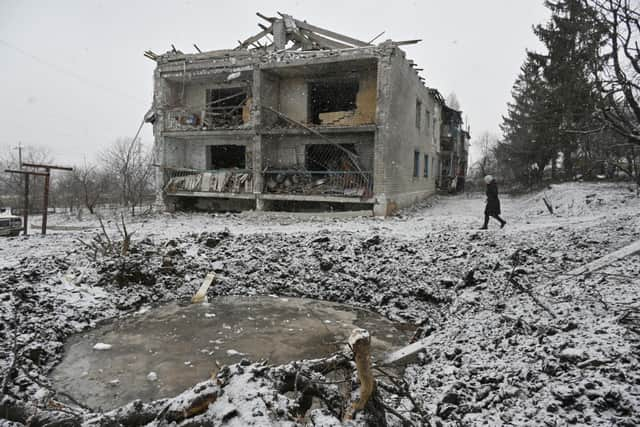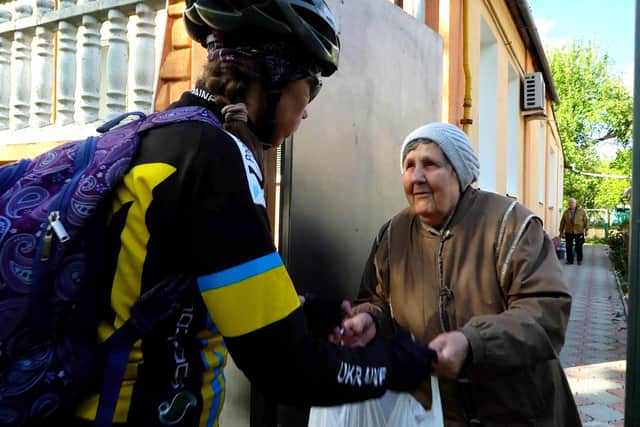Russian invasion of Ukraine: Scotland raises £38 million for Disasters Emergency Committee’s humanitarian appeal since start of war
Scottish donors have raised around £38 million to help people affected by the war in Ukraine through an emergency appeal launched after the Russian invasion began two years ago.
The Disasters Emergency Committee (DEC) said donations to its Ukraine Humanitarian Appeal totalled £426m across the UK, offering aid to 6.9 million people in the war-hit nation. The Scottish Government donated £2.8m, while the UK government contributed £25m through the Aid Match scheme.
Advertisement
Hide AdAdvertisement
Hide AdDEC is the largest charity donor to the humanitarian response, according to UN figures, and represents the equivalent of £6.35 from every person in the UK.


Charities funded by DEC have provided food, clean water, shelter support, cash payments, healthcare, mental health support, winter and hygiene items and much more. As well as delivering aid directly, they have worked with a network of local organisations, helping them scale up their response.
The majority of aid spending has been focused inside Ukraine, with funds also being spent to help refugees in Poland, Romania, Moldova and Hungary.
As the conflict has worn on, the humanitarian crisis has continued to evolve. DEC charities have responded to each new development in Ukraine, for example by moving into newly accessible areas to provide aid to those in need when the frontline has shifted, keeping people safe and warm last winter as Ukraine’s power infrastructure was attacked, and helping people forced to flee when the Kakhovka dam was breached in June last year.
Recently, DEC charities have particularly focused on providing people with cash payments to allow them to buy what they need. A large-scale project similar to the UK government’s ‘Homes for Ukraine’ scheme, where people in Ukraine are provided with cash payments to help with the cost of hosting people displaced from other parts of the country, has also been supported.


Providing basic essentials remains a priority, two years on, with 450,000 people receiving food assistance. Half a million people have benefited from repairs to water and sewage systems in the year to September 2023.
Saleh Saeed, chief executive of the DEC, said: “Last year I visited Ukraine to meet some of the people being helped with the money that has been so generously donated by the British public. I met people like Polina, a mum of three from Kharkiv, who had fled the fighting while pregnant.
“To see that she was safe, with a place to stay, food and other items the family needed, thanks to donations from across the UK, was really heart-warming. And to know that she is just one among millions of people that our member charities have been able to reach through this appeal is just incredible.”
Advertisement
Hide AdAdvertisement
Hide AdScott Lea, International Rescue Committee’s (IRC) country director in Ukraine, said: "Thanks to funds from the DEC's Ukraine Appeal, the IRC have been able to rapidly provide timely cash distributions to sustain and empower families throughout the conflict, reaching almost 20,000 vulnerable households across Odesa, Mykolaiv, and Kherson by January 2024.
"Cash assistance affords people the dignity and choice to buy exactly what they need, when they need it – whether it be food, medicine, or other essentials.”
Comments
Want to join the conversation? Please or to comment on this article.
